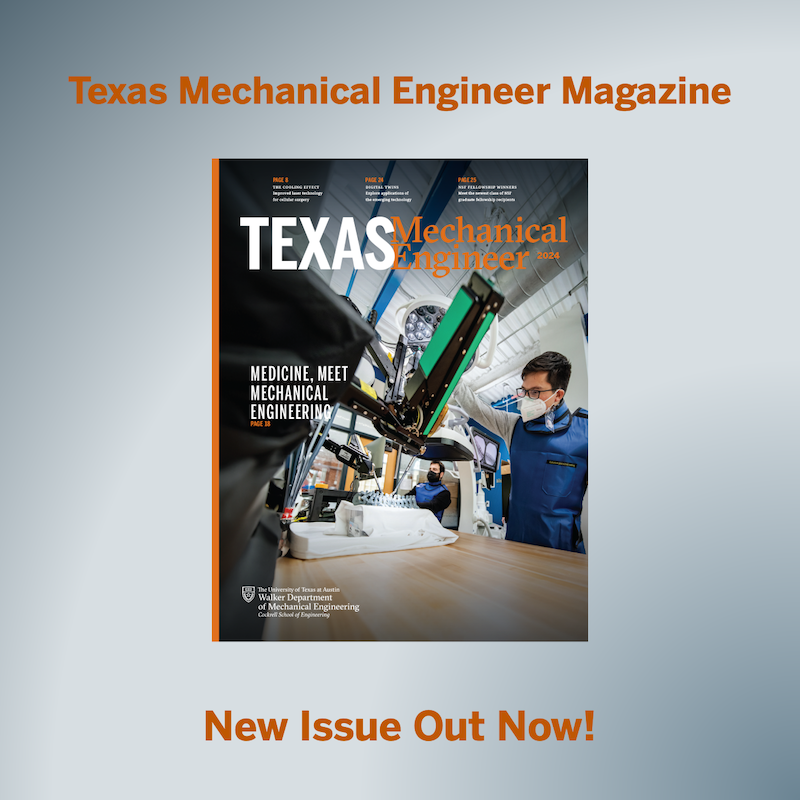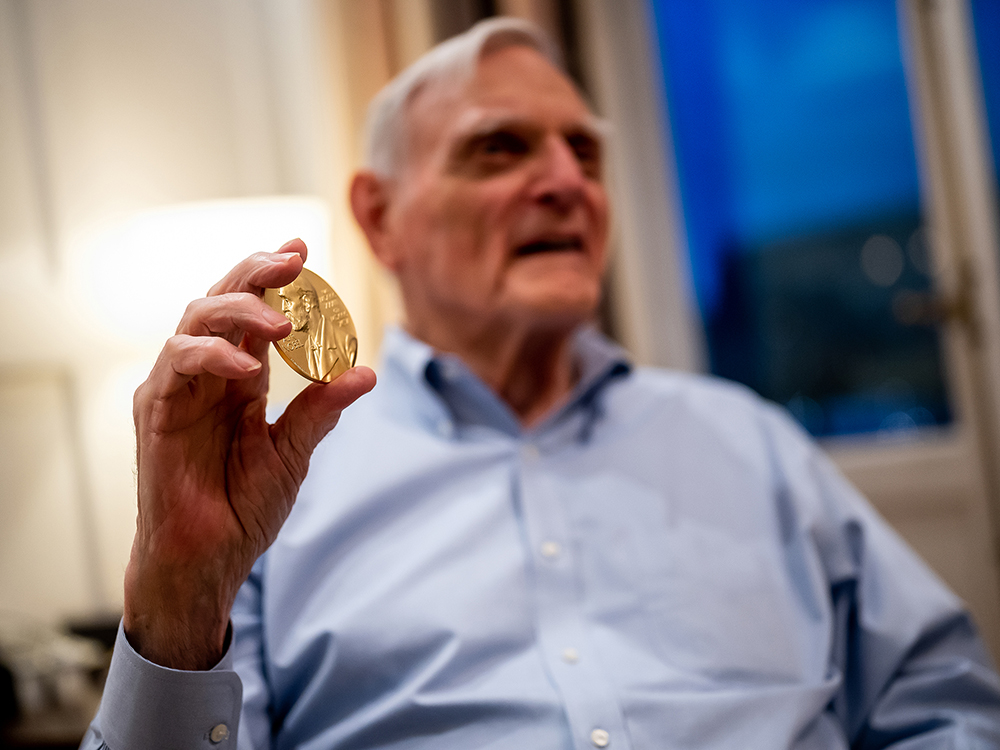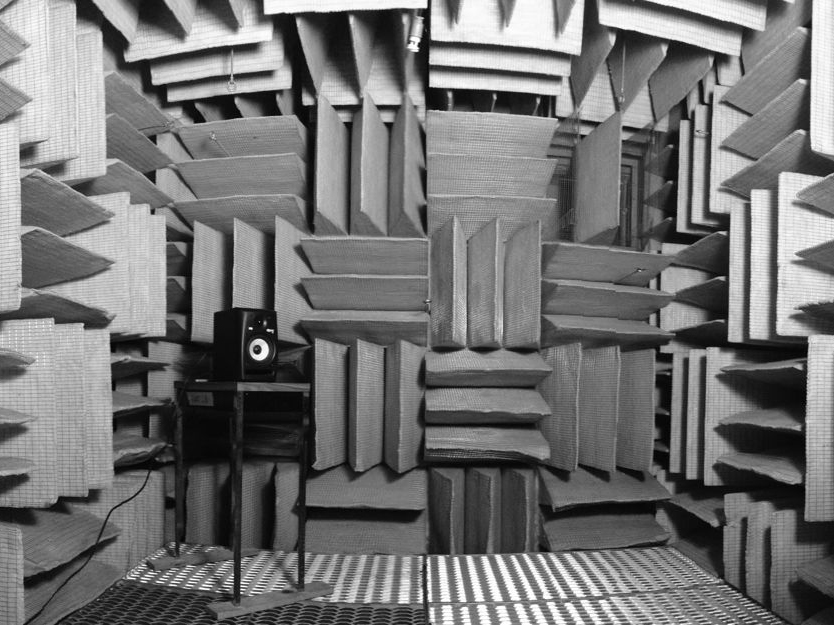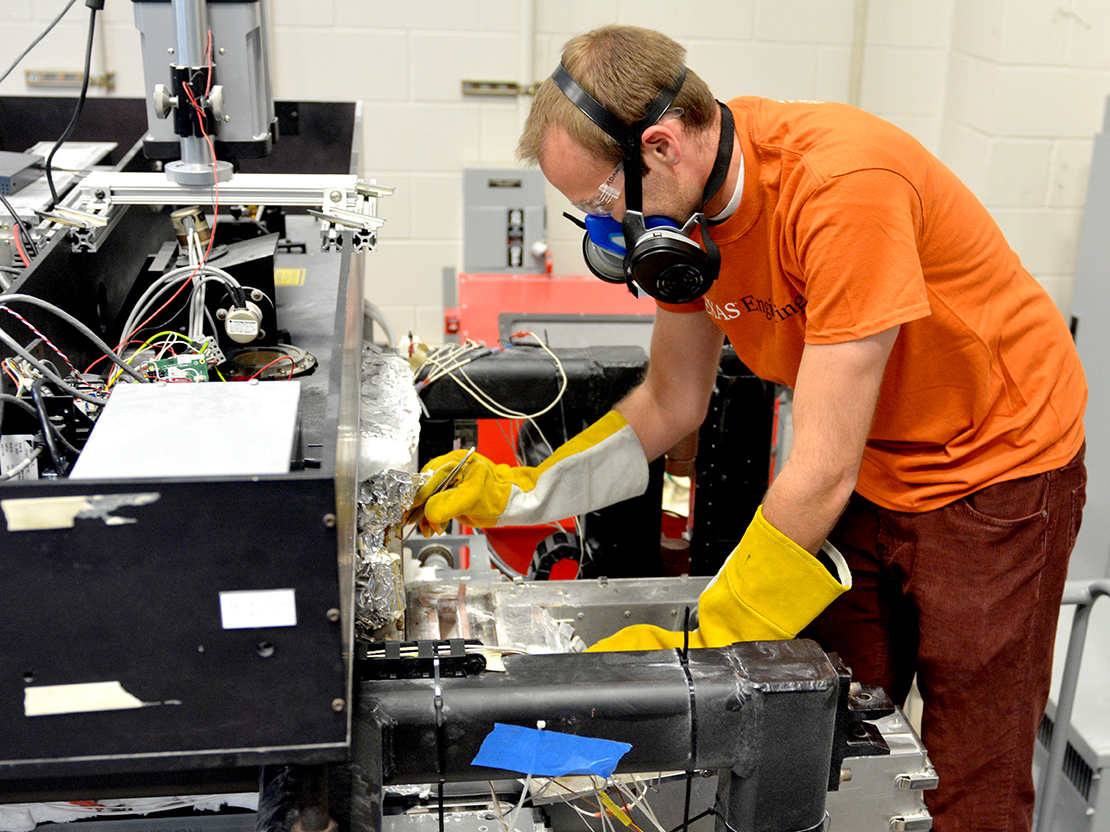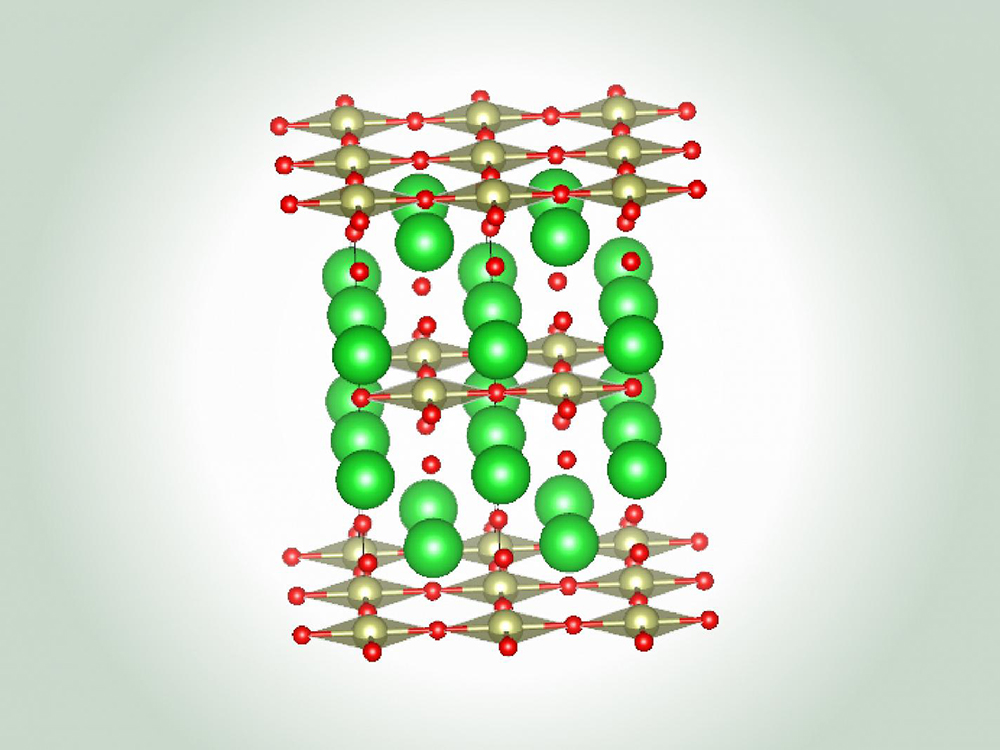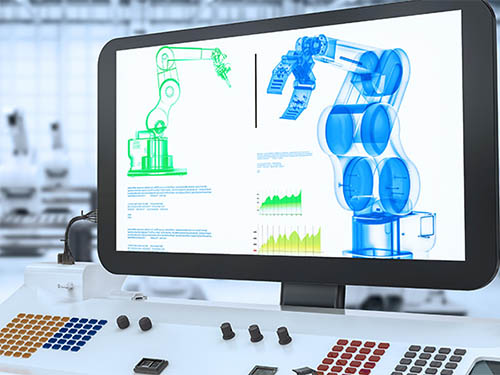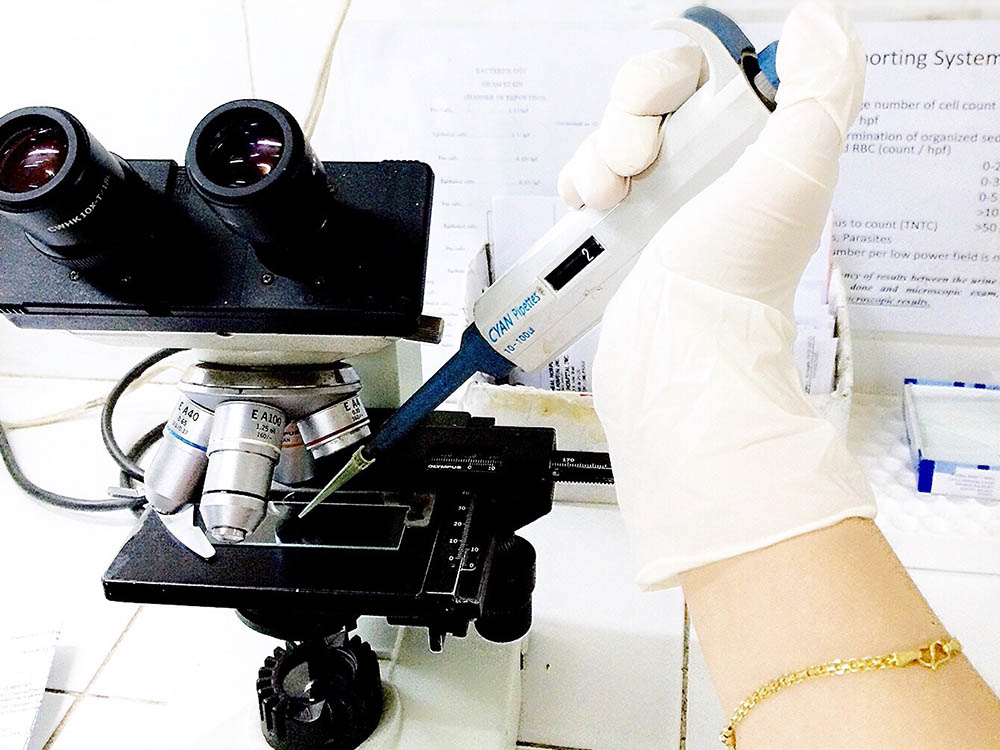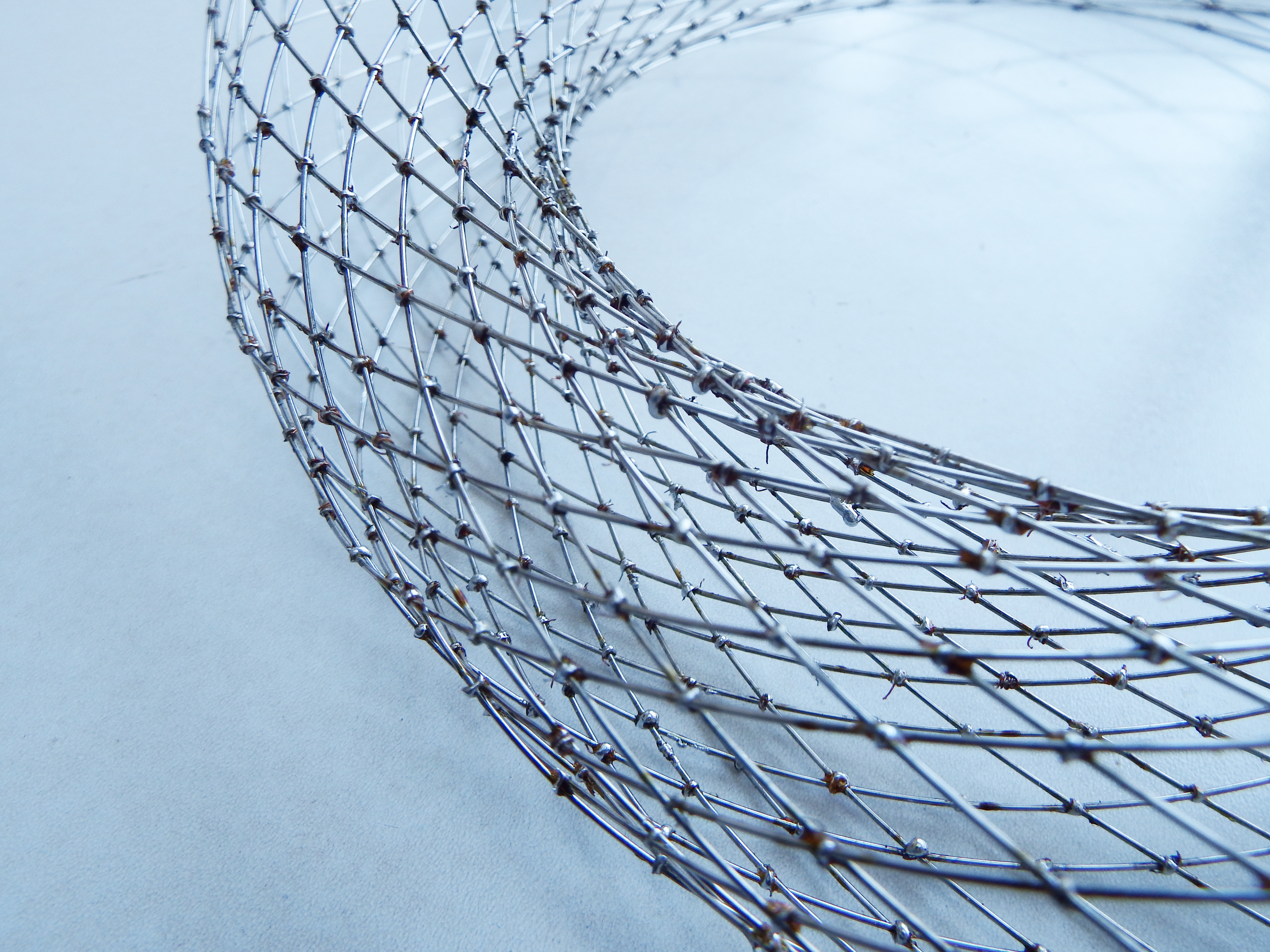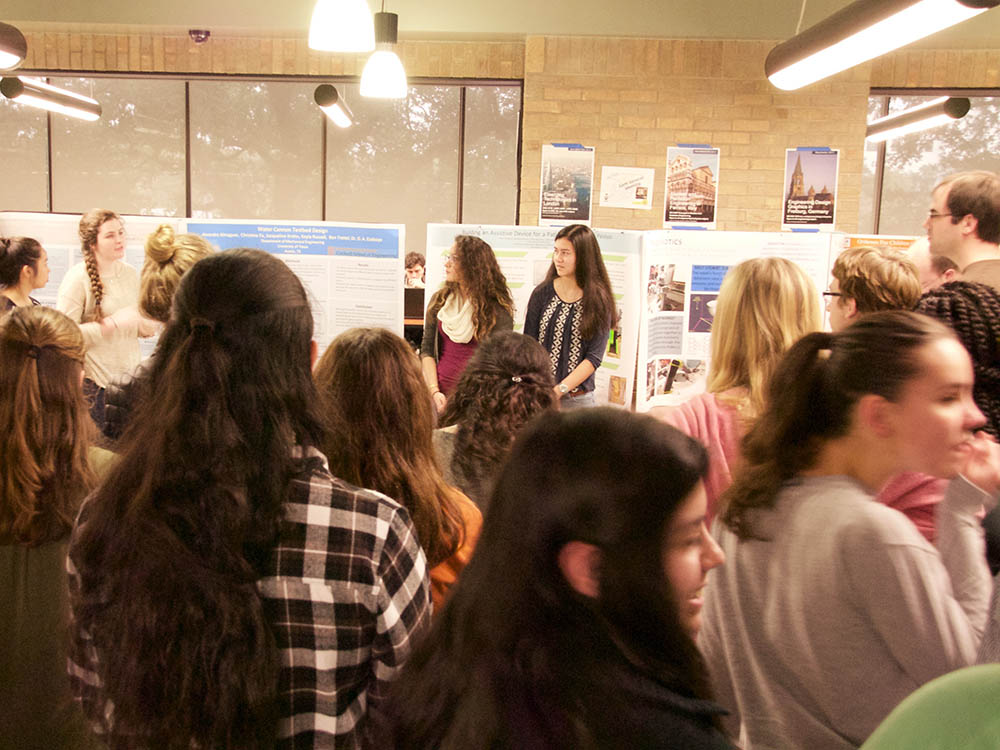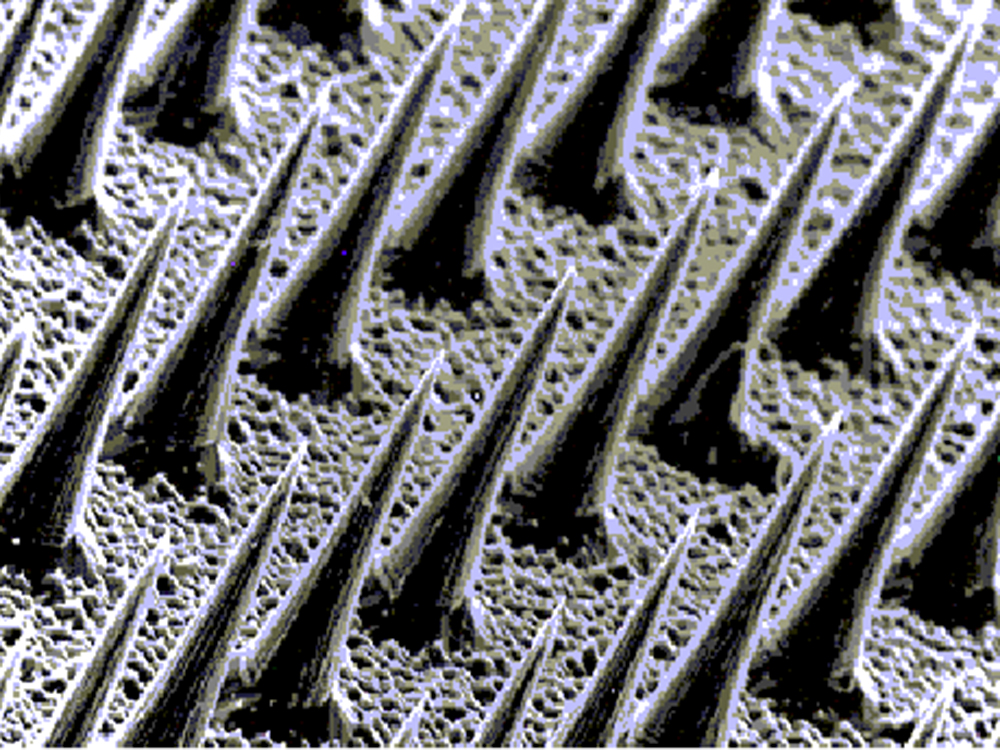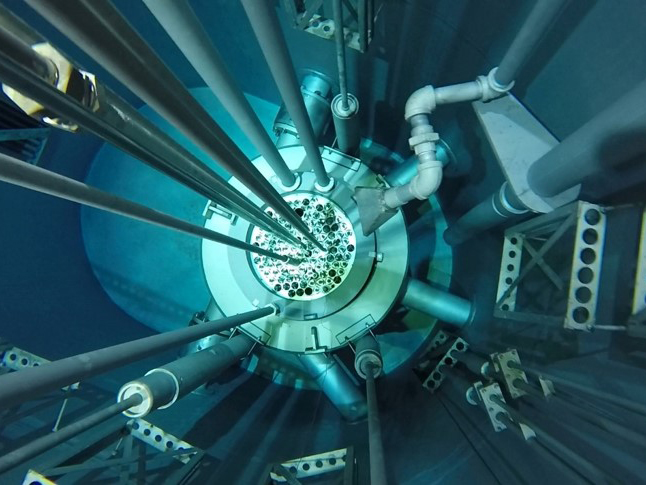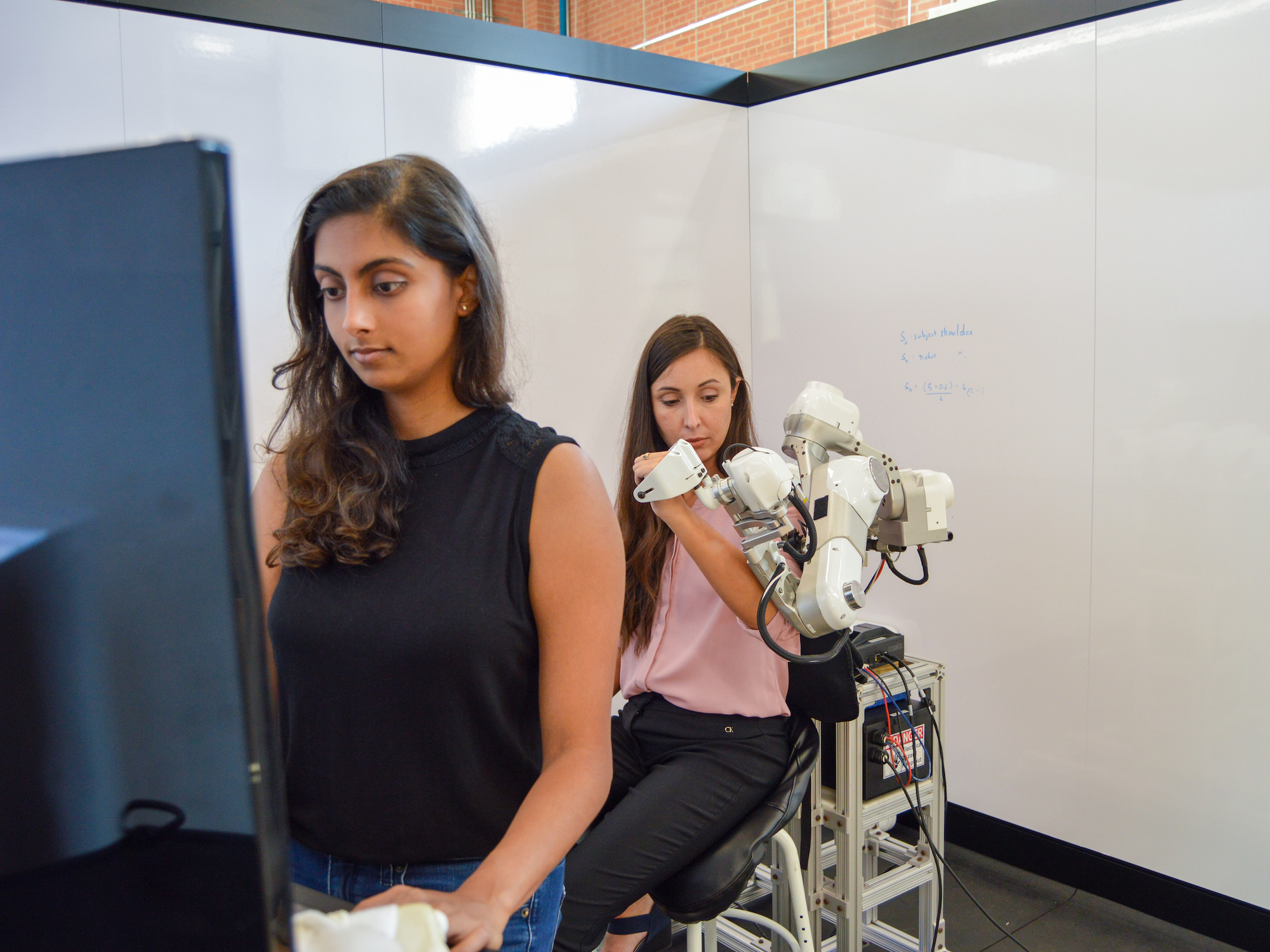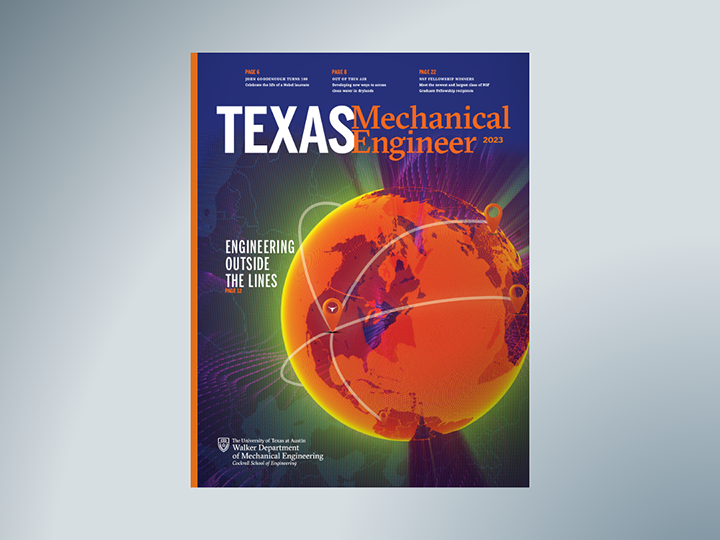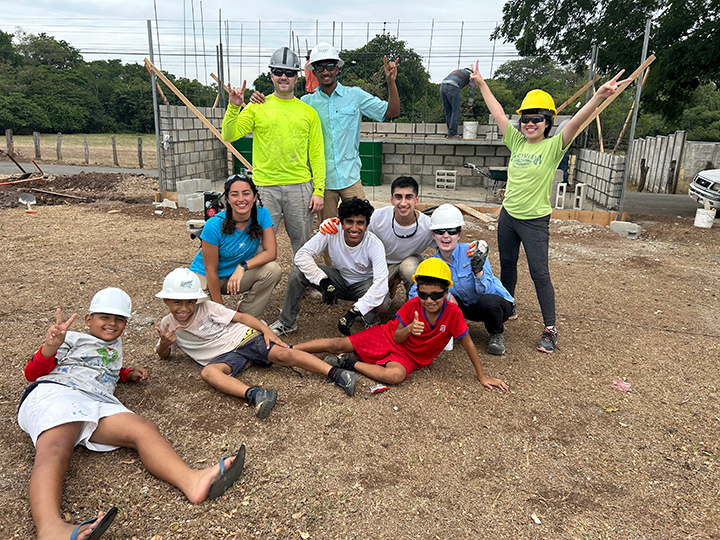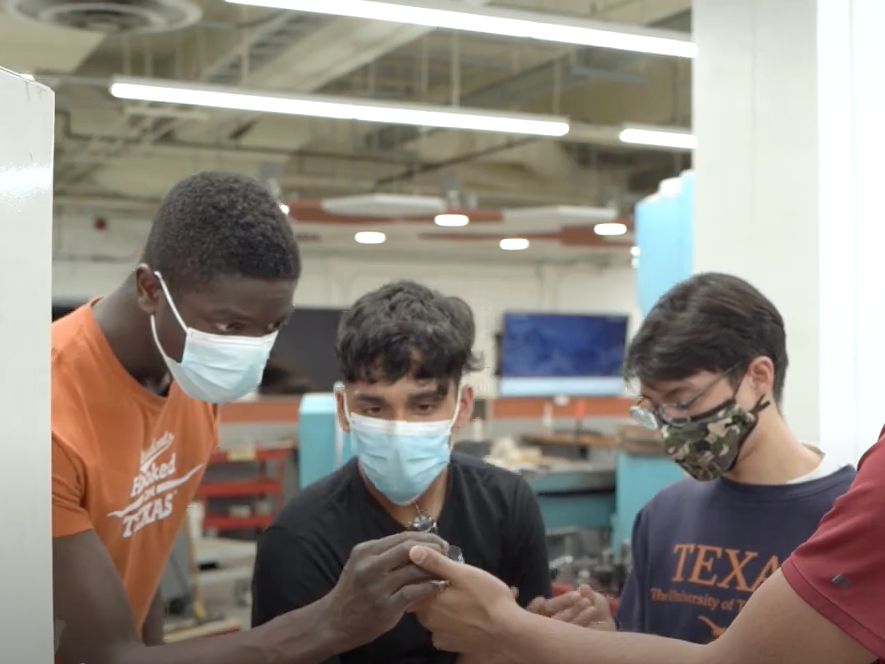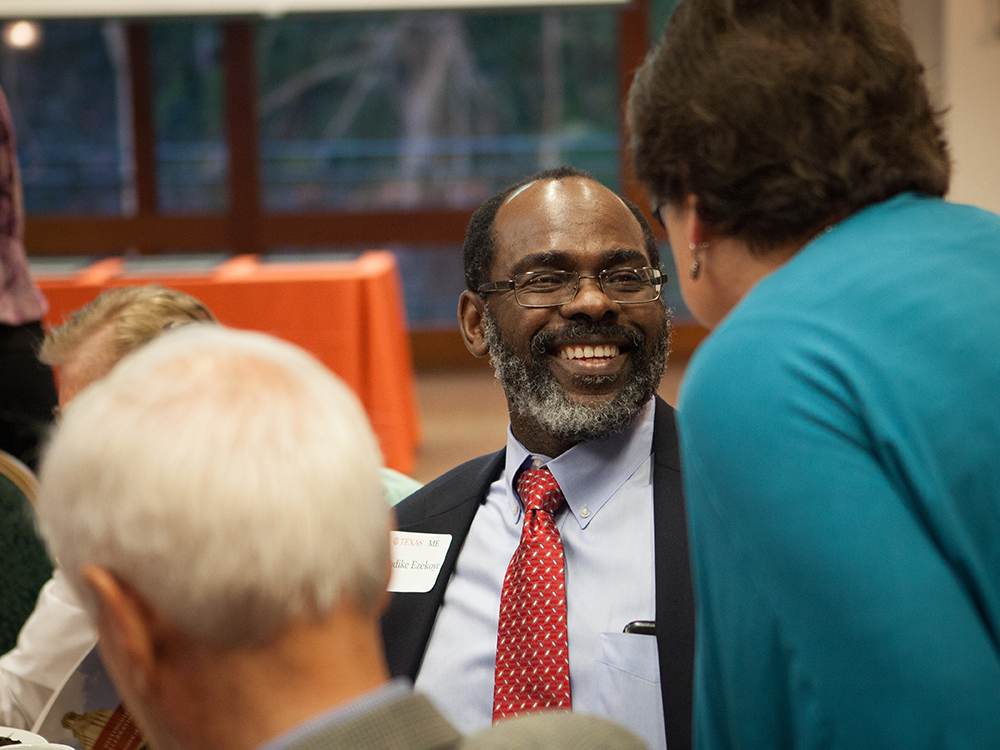Project-Centered Education in Mechanical Engineering (PROCEED) is a department-wide curriculum reform effort with the objective of tying all elements of the mechanical engineering undergraduate experience to real-world engineering. Through the generous support of Ford, Applied Materials, Caterpillar, General Motors and National Instruments, PROCEED has supported 15 pilot curriculum and laboratory development projects. Most of these pilot projects have now been fully integrated into the core mechanical engineering curriculum.
Learn more about PROCEED initiatives »
PROCEED Initiatives
Mechanical Engineering Electronics/Mechatronics Learning Center
This initiative involves five faculty members from Mechanical Engineering and three from Electrical & Computer Engineering to evolve a new core undergraduate electronics-for-ME's course based on computer-linked electronics work stations. Two workstations are being installed this summer for pilot testing, with plans to expand to up to 20 stations over the next two years. These systems will serve both the required core course for all undergraduates and subsequent mechatronics elective courses. The ultimate goal of this initiative is to create a Mechatronics Certificate program as a launching pad to graduate study and professional work in this important area.
Global Engineering Education Initiative
This initiative is being undertaken in response to the growing international dimension in the practice of engineering in the corporate and professional worlds. It is notable that the Cockrell School of Engineering 2020 Committee has cited this trend as a top priority in future engineering education planning. PROCEED funds will provide partial support, travel, and program startup expenses for faculty setting up alliances with universities in other countries for University of Texas students to gain experience in international engineering and business practices. Internal curriculum reforms are also being assessed to encourage a more globally-oriented perspective in the undergraduate program (e.g., revision of foreign language elective restrictions) with the goal of providing a significant international educational experience to more than half of our students by 2007.
Instrumentation Express Program
A recent grant from National Instruments is supporting the startup of the Instrumentation Express Laboratory, a facility to permit rapid creation of measurement and data acquisition systems for mechanical system experimentation. Over the next three years, additional support will be provided from other PROCEED sources to help integrate the ";Express" concept into the mainstream ME curriculum. This laboratory and its associated computer-aided measurement system design tools will provide a new capability to help move our Senior Design Program from paper to reality.
Anywhere/Anytime Computing and Experimentation (ACE) Initiative
The past four years has seen a surge in the computing-intensiveness of our curriculum, stimulated in large measure by the PROCEED innovations described above. This has placed extremely heavy demands on our centralized Mechanical Engineering Technology and Educational Resources (METER) computer facilities. Now that wireless networking is ubiquitous in all engineering buildings on campus, it makes sense to begin working toward a decentralized student computing model based on universal ownership or access to laptop computers. PROCEED funds will be needed to supplement traditional student-fees support in the initial phases of this effort, e.g., to provide greater application server and site-license capacity, and to create a "lending library" of properly equipped laptops for those students who cannot afford to own them privately.
A related innovation is the development of experimental apparatus for undergraduate laboratories which can be remotely controlled via the internet. A pilot project in this area has been the automation of our 12" wind tunnel, including all controls, instrumentation and live video/audio links, so that experiments can be conducted in real time from remote locations. This initiative has the potential to greatly expand student accessibility to instructional labs as a supplement to in-lab hands-on experimentation.
Engineering Entrepreneurship Initiative
America's greatest technological achievements have come about through a combination of engineering ingenuity and business acumen in bringing products from the laboratory to the marketplace. During the past year, Dr. D.K. Ezekoye has initiated a program in engineering entrepreneurship called Technology Innovation Leadership for Engineers (TILE). In this pilot effort, teams of senior ME students developed technology development and commercialization plans using University-owned patents as case studies. In the next phase of PROCEED, we expect to continue developing TILE and expanding its scope to include students at all levels.
Bridges to the Future Certificate Programs
In an effort to enrich the senior experience and launch students toward successful careers in key areas of engineering, we are initiating development of optional "Bridge Certificate" programs in areas such as Product Design and Manufacturing, Foundations of Nanotechnology, Mechatronics and Controls, Advanced Materials Engineering, Nuclear and Radiation Engineering, Biomechanical Engineering, Automotive Engineering, Systems Engineering and Optimization, and International Affairs and Engineering. Students who choose to pursue a certificate program will, in addition to completing a series of targeted undergraduate courses to fulfill their B.S. elective requirement, also take one or more graduate courses and carry out an independent research project under the direction of a faculty member and a graduate student mentor. A proposal has been submitted to the National Science Foundation to help fund this effort.
PROCEED Curriculum Innovations
- Active involvement of 30 faculty members (approximately half of the department) in undergraduate curriculum reform.
- Integration of project-centered work in 14 courses covering freshman through senior years.
- Integration of new hands-on labs with respective theory courses.
- Introduction of new computer modeling projects with PROCEED-supported software in several theory courses.
- Development of an online student portfolio system.
- Introduction of videoconferencing with corporate engineers into undergraduate instruction.
- Development and application of comprehensive quality assessment methods for project-centered instruction.
- Opening of senior elective sequence to a broad variety of Career Gateway options.
- Creation of the Bridges to the Future Certificate Program for students who choose to focus their Mechanical Engineering electives in one in-depth area.
PROCEED Laboratory/Classroom Renovation and Re-equipping Projects
- New M E 130L Experimental Fluid Mechanics Lab: purchase of one new wind tunnel and complete rebuild/retrofit of existing wind tunnel, all new instrumentation, and computer integration of measurement systems.
- New M E 139L Experimental Heat Transfer Lab: development of 7 new labs with brand new apparatus, and introduction of portable "temp kits" based on Labview and associated hardware to permit field experimentation as an integral part of the course.
- New scanning electron microscope and x-ray diffraction equipment purchased for use in M E 111L (Materials Engineering) and M E 136L (Materials Processing) labs.
- Renovation and retrofitting of thermodynamic systems apparatus to permit introduction of experimental projects in M E 343 Thermal-Fluid Systems.
- Purchase and installation of rapid prototyping equipment to permit fabrication of student-designed models for M E 302 and the Senior Design Projects Program courses.
- Two large classrooms and a large conference room equipped for videoconferencing with entire classes and student work groups.
To make a gift in support of PROCEED, contact Bliss Angerman at 512-232-7085 or


